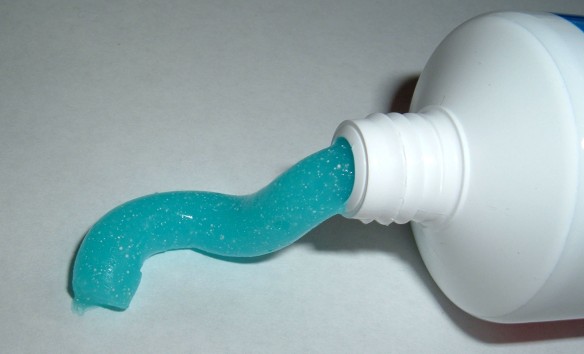 Gum disease and dental decay are the main reasons for tooth loss. Plaque (a film of bacteria) can build up on the teeth, leading to swelling and redness of the gums (gingivitis) which if left untreated can develop into a more serious form of gum disease (periodontitis). Periodontitis can cause pain, eating difficulties and tooth loss. The build up of plaque can also cause teeth to decay. Adding an effective and safe antibacterial ingredient to toothpastes could be an easy and low-cost answer to these problems.
Gum disease and dental decay are the main reasons for tooth loss. Plaque (a film of bacteria) can build up on the teeth, leading to swelling and redness of the gums (gingivitis) which if left untreated can develop into a more serious form of gum disease (periodontitis). Periodontitis can cause pain, eating difficulties and tooth loss. The build up of plaque can also cause teeth to decay. Adding an effective and safe antibacterial ingredient to toothpastes could be an easy and low-cost answer to these problems.
Triclosan is an antibacterial agent with low toxicity that can be added to toothpastes. It is mostly used in conjunction with a copolymer which helps uptake and retention to the tooth enamel. We examined the evidence to see whether this combination, added to fluoride toothpaste, was effective in the control of plaque and gingivitis.
What was the research?
A systematic review of the evidence to assess the effects of using a triclosan copolymer containing fluoride toothpaste compared with using a fluoride toothpaste for oral health.
Who conducted the research?
The research was conducted by Phil Riley, on behalf of the Cochrane Oral Health Group and Thomas Lamont of Dundee Dental School.
What was the evidence included in the review?
Data was extracted from 30 randomised controlled trials, in which 14,835 people were randomized to receive a triclosan copolymer containing fluoride toothpaste, or a fluoride toothpaste containing no triclosan copolymer.
What did the evidence say?
The evidence shows benefits in using a triclosan/copolymer fluoride toothpaste when compared with a fluoride toothpaste without triclosan. There was a 22% reduction in plaque, a 22% reduction in gingivitis and a 48% reduction in bleeding gums. Plaque was reduced by 5%. There was insufficient evidence to prove that the triclosan toothpaste was more effective in preventing periodontitis. There was no evidence of any harmful effects associated with the use of triclosan copolymer toothpastes in studies up to three years in length.
How good was the evidence?
Ten studies were assessed as having low risk of bias. Nine were at high risk of bias and the risk was unclear for the other 11 studies. For plaque and gingivitis, the results of the individual studies consistently show a positive effect, it is reasonable to be confident in these results. The evidence for reduction of plaque was of high quality.
What are the implications for dentists and the general public?
This review presents moderate quality evidence that toothpastes containing triclosan/copolymer in addition to fluoride reduce plaque, gingival inflammation and gingival bleeding when compared with toothpastes that contain fluoride alone. There is weaker evidence that triclosan/copolymer toothpastes reduce root caries and calculus but the evidence for prevention of periodontitis was insufficient.
What should researchers look at in the future?
There is a need for well-conducted trials on the long term (5 years +) effect of triclosan copolymer toothpastes, with periodontitis assessed as one of the outcomes. Only three of the included studies had no involvement from toothpaste manufacturers. Future studies should be led by independent investigators without any direct influence from industry.
Link
Riley P, Lamont T. Triclosan/copolymer containing toothpastes for oral health. Cochrane Database of Systematic Reviews 2013, Issue 12. Art. No.: CD010514. DOI: 10.1002/14651858.CD010514.pub2.
